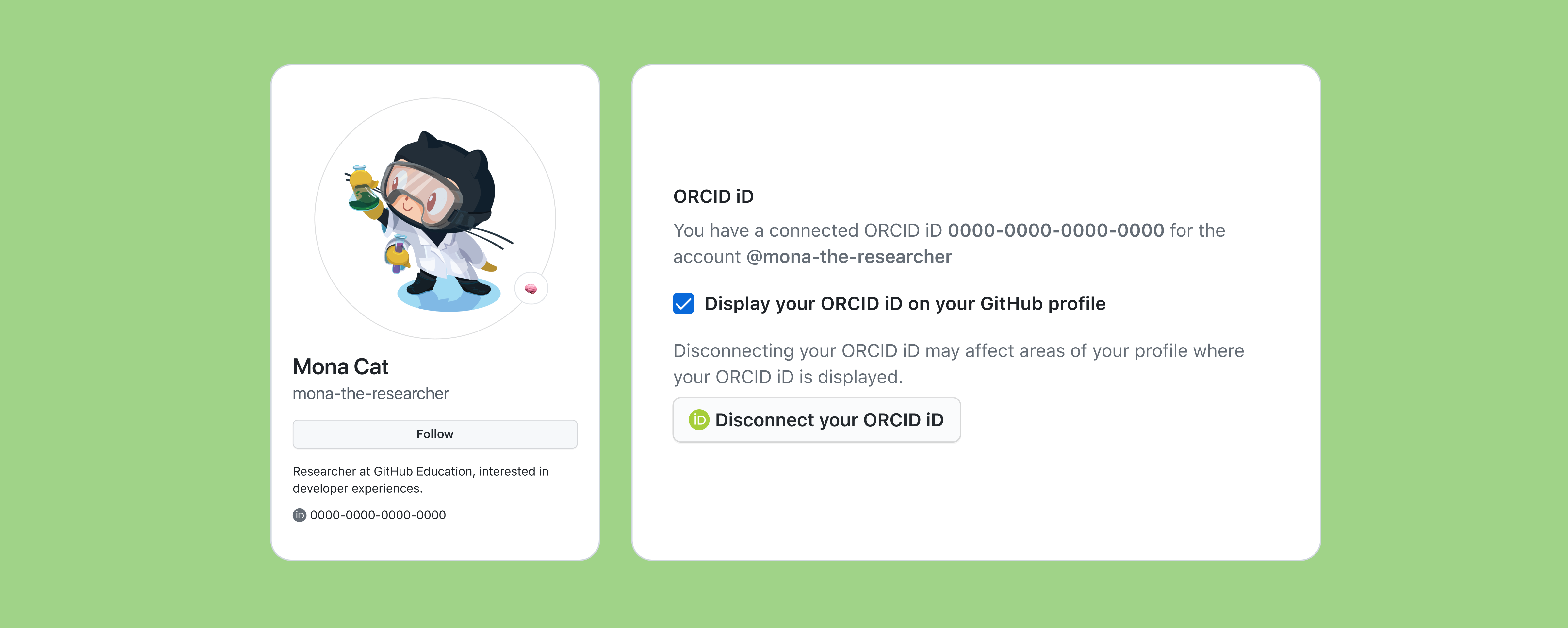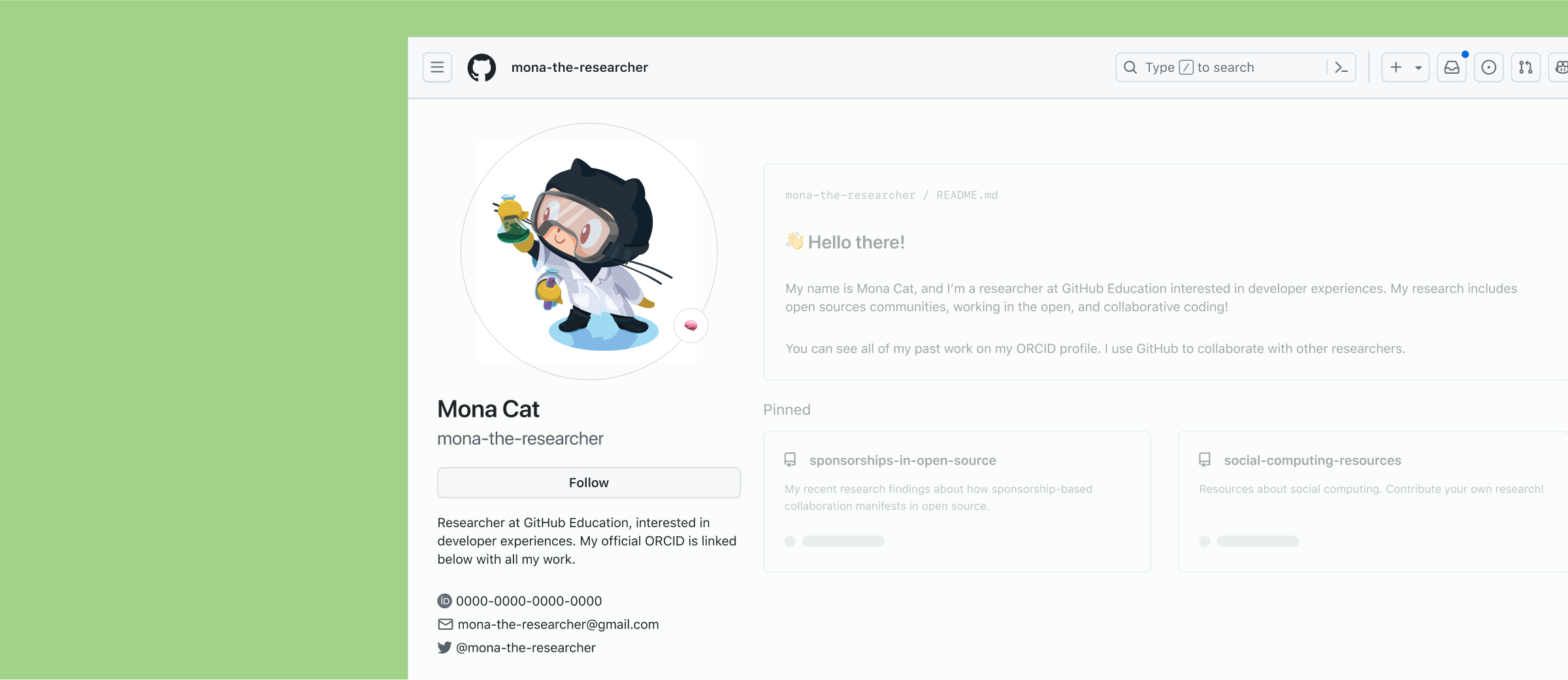Enabling academics to properly attribute their work on GitHub
GitHub Education • 2024 • Lead Product Designer

My designs for the ORCID integration, appearing on a user’s public GitHub profile and in private account settings.
Academics make up a small but growing set of users on GitHub, and they needed a way to get credit for their work on GitHub.
GitHub is mainly built for developers, and yet a growing number of academics are joining GitHub to conduct, share, and collaborate on their research. However, there was no obvious way for these academics to get legitimate credit for the work they did on GitHub.
ORCID iD’s are industry-standard unique identifiers that researchers use to properly credit their work. Almost all academics have a registered ORCID iD to attribute themselves to their work, often through OAuth to lend legitimacy. Would academics be interested in using ORCID iD’s to attribute their work on GitHub?
I worked closely with the product team to research and scope our exploration of integrating ORCID into GitHub. We learned that about 1,000 users had already linked ORCID iD’s on their GitHub profiles. Without proper ORCID OAuth integration, though, these GitHub profile links might not be legitimate.
Thus, we decided on the MVP goal implementing OAuth to display ORCID iD’s on GitHub profiles, which could give us a good signal of user interest without having to invest too much design and engineering effort.

How ORCID links previously appeared on GitHub profiles. Without an OAuth integration, though, any user could link another’s ORCID account.
I designed GitHub’s first official ORCID integration for academics by balancing simplicity, safety, and legitimacy in the user flow.
Making use of ORCID’s existing OAuth functionality, I designed a simple one-button flow starting in GitHub’s profile settings so that users already logged into their ORCID accounts only need three clicks to OAuth and connect their ORCID account.

In my design, users who are already logged into their ORCID accounts only need three clicks to OAuth and connect their ORCID account.
The simplicity of this flow ensures that users experience extremely low friction when linking their ORCID account with GitHub, especially those who are already logged in.
I also designed extra safety layers by leaving the option to display one’s iD unchecked by default and using clear copy design to communicate the connected iD and GitHub account.

I made multiple design decisions about default states and copy to ensure safety for my users.
These individual design decisions helped users be sure about how and where their iD’s were being displayed. This was especially important for those developer-academic hybrid users, where values of anonymity and attribution can sometimes be at odds with one another.
On user-facing profiles, I followed GitHub’s existing supported social link patterns and advocated for the ORCID logo to appear next to authenticated iD’s on user profiles.

My designs followed current GitHub social link and logo patterns to signal legitimacy for displayed ORCID iD’s on profiles.
The addition of the ORCID logo, rather than a default “link” icon, signals legitimacy for anybody who has successfully OAuth’d and displayed their ORCID account.
GitHub’s ORCID integration surpassed expectations, signaling extremely high interest in more features built for academics.
After 4 months of design and development, my work shipped in March 2024 with fanfare from both GitHub and ORCID. Within just 2 weeks of shipping, the number of linked ORCID accounts on GitHub jumped from 1k to 10k. This number has since jumped to 100k as of January 2025!
Our users also voiced their excitement on social media.
-
“A new collaboration is here to change the landscape of research and development […] this integration facilitates enhanced visibility and recognition within the research community.”
-
“Another win for open science! […] This makes it easier for others to explore the pipelines you used to get the results of your published research papers.”
-
“This brings a lot of possibilities for acknowledging contributions to coding projects.”
Spurred by the positive response from the academic community, GitHub and ORCID have further invested in their partnership. Thanks to the results of this small but successful project, GitHub Education and ORCID are now collaborating to explore more complex feature opportunities for academic users.